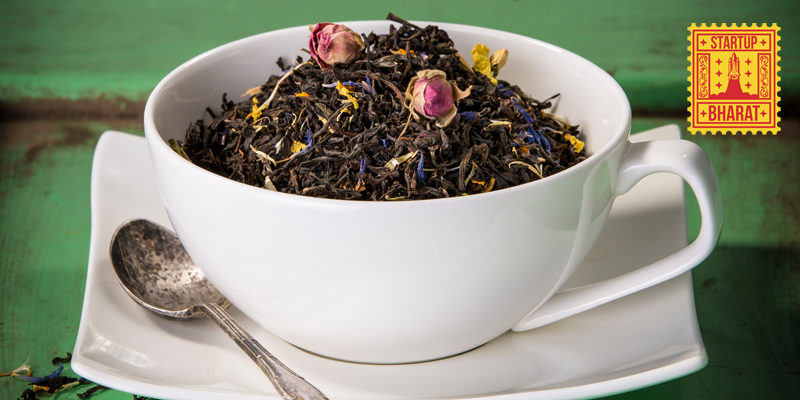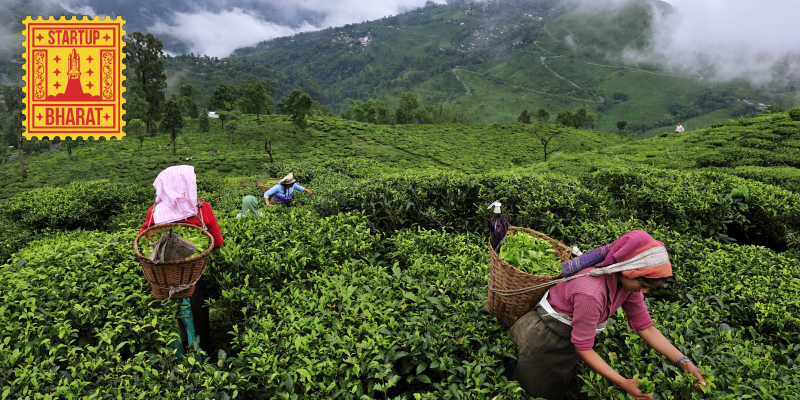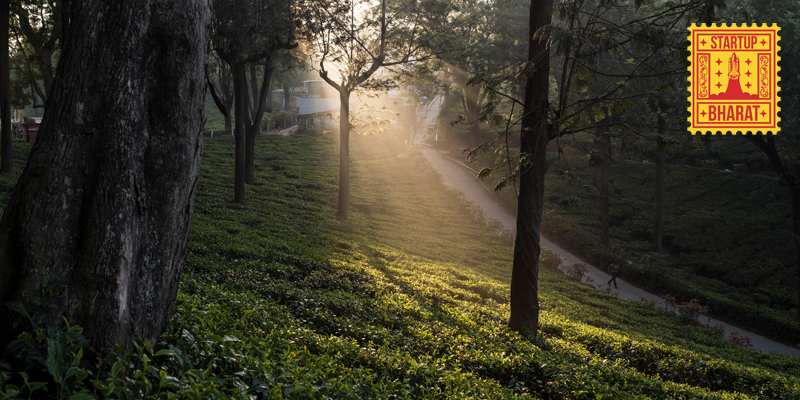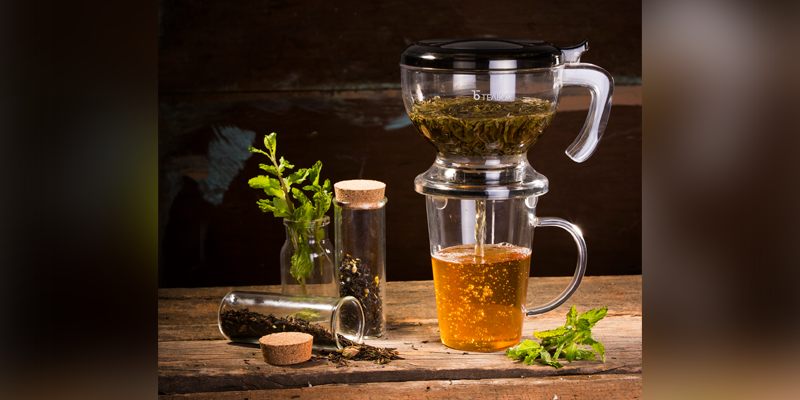In India, tea is not just a beverage but a bustling culture carried across generations for over 170 years. We’re the second-largest producer of tea and its largest consumer too. But, COVID-19 has impacted our daily chai as well.
Reports suggest that for the first time, India has recorded a 40 to 60 percent increase in the average price of tea amidst the nationwide lockdown due to increasing demand and shortage of supply.

The cup that cheers is in short supply in the pandemic. (Image credit: Teabox)
The lockdown also resulted in a big loss of crops for tea gardens across Northeast India. According to data released by the Tea Board of India, the country’s overall tea production fell to 39.02 million kg in April 2020, as opposed to 84.49 million kg in April 2019.
According to the stakeholders in the industry, apart from loss in crops, restrictions in logistics during the lockdown caused difficulties for transportation of the produce from farm to warehouses, disrupting the supply chain. However, they also believe that the industry is now going back to normal as India slowly opens up after the lockdown.
Disruption due to COVID-19 and floods
Speaking to YourStory, founders of tea startups explain that the first nationwide lockdown coincided with the harvest time of the first flush tea. Due to the lack of manpower amidst the lockdown, the first tea leaves of the season couldn’t be plucked, which has resulted in a shortage of tea supply across the country, resulting in higher prices.
Tea Board data further reveals that the price of tea sold at the Indian auction in Guwahati, Assam, in July 2020, increased to Rs 283.53 per kg from Rs 162.09 per kg in the same period last year. Similarly, prices for tea from Siliguri, West Bengal, increased to Rs 236.66 in July 2020, from Rs 143.69 in July 2019.
“The first flush tea or the spring tea forms 40 to 50 percent of the annual revenue for tea businesses. These leaves have a certain set of characteristics only available in mid-March due to the weather conditions. However, the plucking could not happen and most tea gardens in Darjeeling and other regions lost a lot of their fresh produce,” says Kausshal Dugarr, Founder and CEO of Teabox, a Siliguri-based ecommerce startup, which provides premium tea.

Women pick up leaves by hand at a tea garden in Darjeeling. (Image courtesy: Shutterstock)
The startup sources its tea from Darjeeling, Assam, Nilgiris, and Nepal, and distributes it across the world through its online platform.
Media reports suggest that restrictions on travel and trade may result in the decline of tea exports by six to eight percent as this is the time of the year when international tourists visit the northeastern region to purchase premium tea.
Ankit Baid, Co-Founder and CEO of Guwahati-based Namhah Tea, adds that tea production has also suffered due to workers being infected with COVID-19 and migrants returning to their hometowns.
Suresh Nanjan, Co-founder of Tamil Nadu-based Vijayalakshmi Natural Farms Private Limited, which offers exclusive handcrafted Nilgiris teas, also added that their business was initially affected during lockdown when some of the auction centres were not functioning.
Adding to this, Bahniman Kakati, Co-founder of Teaorb, a Guwahati-based online platform for selling tea, says that it is a “double whammy for Assam tea gardens” as it is not only fighting COVID-19 but also the Brahmaputra floods.
“Floods and rains are a problem that the Assam tea industry has to deal with every year. Adverse weather conditions and clogging affects the yield and quality of the tea produced,” he adds.
According to media reports, the Indian Tea Board is expecting a 10 percent crop loss due to the damages incurred by Assam tea gardens due to heavy rains and floods. Prabhat Bezboruah, Chairman of India’s Tea Board, told a media outlet that a 12 percent price hike due to lower supply may make up for the crop loss.
The report also added that the prices have risen after eight years but may decline next year in case of higher production.

Credit: Teabox
Support for tea plantation workers
Tea plantation workers, including farmers and pluckers, were allowed to resume work from April. However, the government made it mandatory for workers to follow safety protocols, including physical distancing, wearing masks, and regular hand wash and sanitising. It is also important for tea garden owners to ensure regular health checkups of the workers and ensure timely wages for the workers.
Media reports suggest that health facilities available to the plantation workers have always been inadequate. While women workers are susceptible to anaemia and malnutrition, men are vulnerable to lung complication due to spraying of pesticides. With the workers generally staying in quarters in the gardens itself, they may be at a higher risk of COVID-19 infection.
In May, Hindustan Unilever Limited extended its collaboration with UNICEF to ensure delivery of essential hygiene products to the tea-plantation workers of Assam in order to keep the pandemic at bay.
Shyam Goel, Director of Jalpaiguri-based Ranicherra Tea Estate, says that the company currently manages around 1,100 plantation workers in their tea gardens. When asked about the steps taken to support the workers, Shyam says that the company has ensured that workers follow social distancing and masking protocols. He explains that maintaining proper distancing is actually not an issue as tea gardens are generally spread across hundreds of acres.
He adds that the company ensures weekly health checkups for workers. They are also required to wash and sanitise their hands every hour. “We are providing wages to workers on time and are providing rations for free in order to provide economic support,” Shyam says.
Increase in domestic demand
According to Punit, a major chunk of demand for tea from Northeast India is from the domestic market, and is not heavily dependent on exports.
He adds, “India normally produces about 1,400 million kg of tea per year and around 1,200 million kg of tea is consumed domestically, making it heavily dependent on domestic demand. The COVID-19 and lockdown situation saw a rise in this domestic demand despite increasing prices.”
Punit adds that people’s choice to consume healthy food also surged during this time. Due to this, he claimed that Udyan Tea recorded an increase in demand for healthy tea options such as black tea, green tea, etc. Similarly, Teabox and Teaorb also recorded exponential growth rates.
However, Indian Tea Board is reportedly looking at a loss for the industry as consumption of tea outside at tea stalls, eateries, hotels, and cha bars is yet to pick up the demand after lockdown, resulting in a dip in demand for large quantities of tea by food businesses.
Punit believes that COVID-19 may be a “blessing in disguise” for the tea industry to an extent.
He says, “There has been a paradigm shift in the prices of tea after COVID-19. Due to a shortage in the supply side and increased demand for the beverage amidst the lockdown, the wholesale price and the retail price index increased, and this change in pricing was extremely necessary. Producers have suffered a loss in crops, which will marginally impact the overall revenue, but the profitability increases. Also, an increase in wholesale price and the retail price index tends to remain constant and thus, the margin for next year will automatically increase.”
But, Tea Board of India Deputy Chairman Arun Kumar Ray recently told a media outlet that a marginal increase in domestic tea consumption will not be enough to make up for the decline in the sale of “big tea packets” due to reduced production.
India might see an annual shortfall by around 150 million kg in tea output even if the COVID-19 situation gets better immediately. The floods in Assam and reduced supply of green leaves in North Bengal have only added pressure to the already reduced output due to COVID-19 and lockdown, he adds.

Credit: Teabox
Current situation and the new normal
Punit Poddar, Co-founder of Siliguri-based Udyan Tea says that while the tea industry is now functioning normally, the loss of crops continued till July as the cycle of the plant changed due to missing of the first pruning or harvesting. “India is at 25 to 30 percent behind on an aggregate in terms of crop production compared to last year,” he adds.
According to Bahniman, the situation is slowly returning to normal as India is opening up. “The gardens produce the tea leaves and sends it to Guwahati warehouses via road transportation. This produce is then auctioned every week and then purchased by buyers to sell it across the country and abroad. During the lockdown, the supply chain got disrupted. However, business is now going back to the normal as the supply chain gets restored,” he says.
He believes that the industry will do good business and survive if the supply chain doesn't get disrupted further.
Speaking about the new normal, Kausshal highlights the accelerated digitisation in the tea supply chain. Due to the lockdown, many took to ordering tea through online platforms, thereby accelerating the growth of the online tea retailers.
Bahniman agrees that digitisation in the supply chain is a welcome move as it eliminates roles of middlemen. He explains that digitisation results in only three players in the process — the producer, the person facilitating the sale of the tea, and the consumer thereby eliminating any other roles and middlemen in the supply chain.
Ankit adds that the sector needs the Tea Board and government institutions to promote the health qualities of tea to help further increase the domestic demand for the products.
“The tea board had been promoting good qualities of tea since last year, increasing the demand for the beverage. More promotions of the beverage will eventually help us increase the consumption of tea across India, which will help the sector make up for the losses from exports,” he says.
(Edited by Saheli Sen Gupta)
Want to make your startup journey smooth? YS Education brings a comprehensive Funding Course, where you also get a chance to pitch your business plan to top investors. Click here to know more.
Link : https://yourstory.com/2020/08/startup-bharat-tea-supply-falls-covid-19-sector-survival
Author :- Shreya Ganguly ( )
August 05, 2020 at 05:45AM
YourStory



